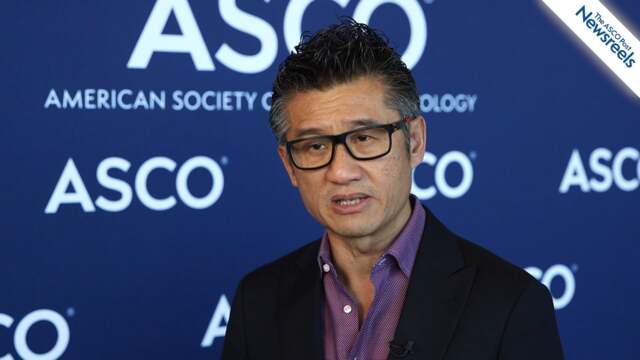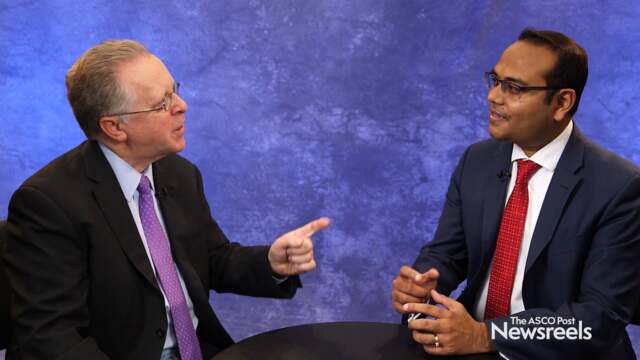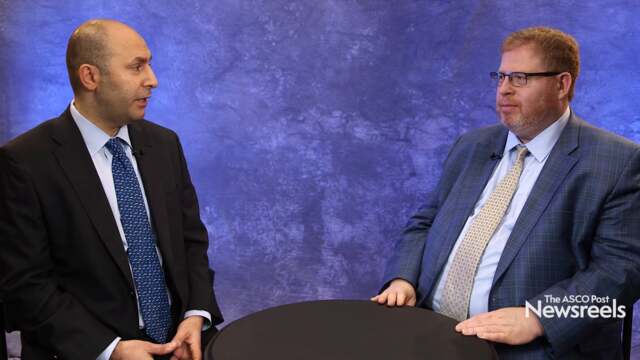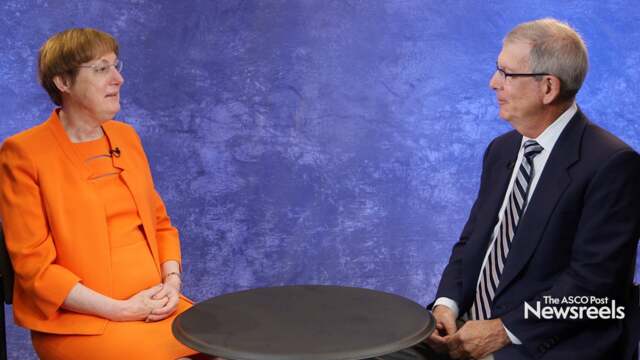Manisha H. Shah, MD, on Thyroid Cancer: Advances in Precision Medicine
2018 ASCO Annual Meeting
Manisha H. Shah, MD, of The Ohio State University Comprehensive Cancer Center, summarizes a session she chaired on progress in tailored treatments for medullary and anaplastic thyroid cancers as well as salivary gland cancer.
Tony Mok, MD, of the Chinese University of Hong Kong, discusses study findings on dacomitinib vs gefitinib for first-line treatment of advanced non–small cell lung cancer, a final overall survival analysis.
Andrew D. Seidman, MD, of Memorial Sloan Kettering Cancer Center, and Aditya Bardia, MD, MPH, of Massachusetts General Hospital, discuss the efficacy of sacituzumab govitecan for treatment-refractory hormone receptor–positive/HER2-negative metastatic breast cancer (Abstract 1004).
Susan Halabi, PhD, of Duke University Medical Center, discusses an analysis that showed an increase in overall survival in African American men vs Caucasian men, all of whom had metastatic castration-resistant prostate cancer treated with docetaxel/prednisone or a regimen containing those agents (Abstract LBA5005).
Toni K. Choueiri, MD, of Dana-Farber Cancer Institute, and Jonathan E. Rosenberg, MD, of Memorial Sloan Kettering Cancer Center, discuss their perspectives on the top abstracts in bladder cancer presented at the 2018 ASCO Annual Meeting (Abstracts 4507, 4506, 4503, 4504).
Allen S. Lichter, MD, ASCO’s former Chief Executive Officer, talks with Nancy E. Davidson, MD, of Fred Hutchinson Cancer Research Center, the 2018 recipient of the Visionary Leader Award, named for Dr. Lichter.





